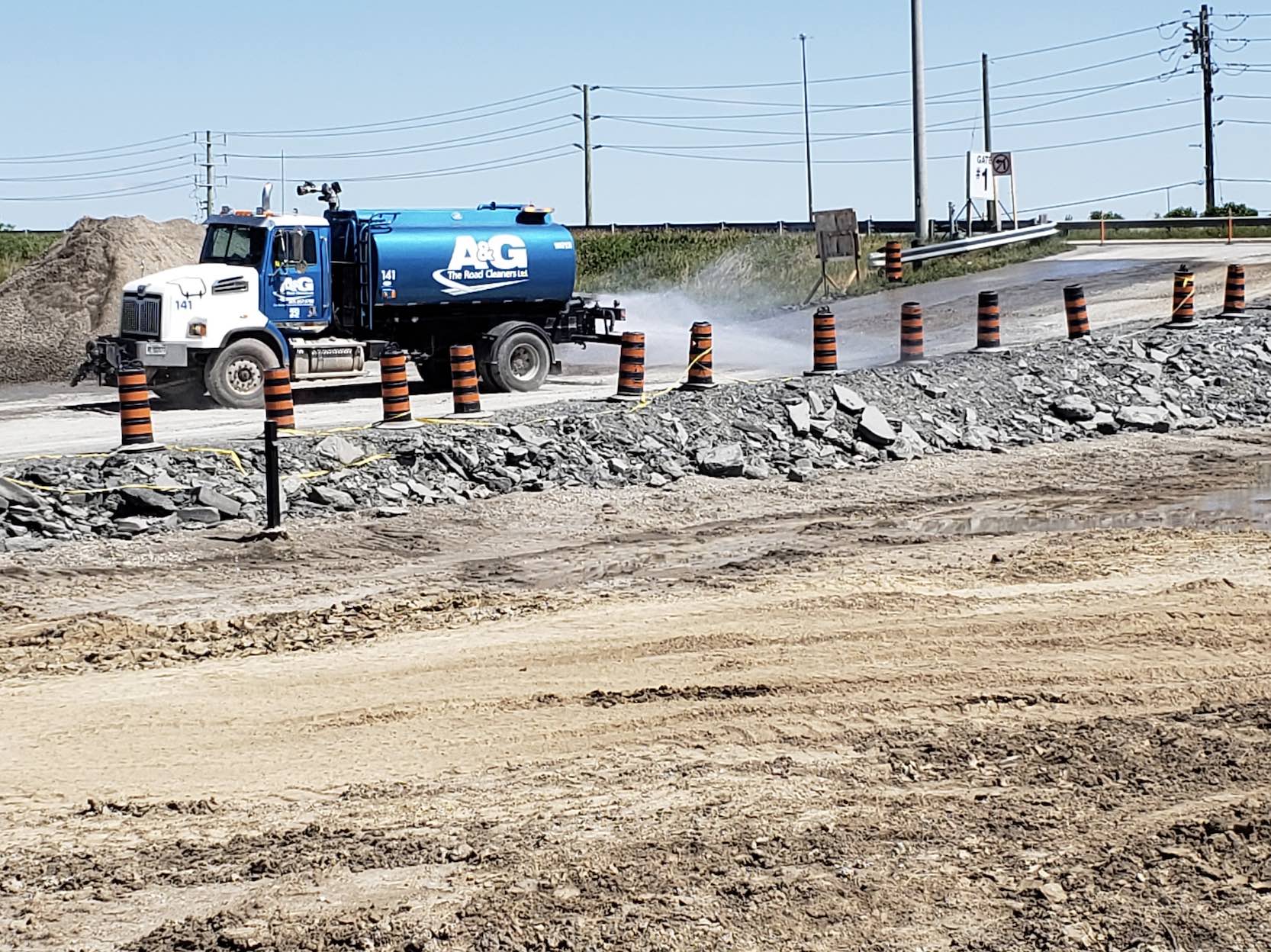How Hurontario LRT project manages dust and runoff
Check out the latest photos and learn how crews uses & control water during construction.
Jun 25, 2020
Usually, when we talk about construction of the many transit projects Metrolinx has on the go – or even GO Transit expansion plans – it’s about moving dirt, metal or concrete.
But for the latest images coming out of the Hurontario light rail transit (LRT) project, it’s all about the H2O.
Water is just another material that needs to be used and controlled, for the benefit of crews and the community.
Ontario has seen some humid days recently. But it’s also seen downpours. The first picture shows a temporary pond constructed at the future site of the Hurontario LRT Operations, Maintenance and Storage Facility (OMSF) in Brampton, Ontario.
The temporary holding pond. (Metrolinx photo)
The purpose of the pond is to collect rainfall and surface runoff water to prevent erosion and flooding. It temporarily stores water and releases it in a controlled manner.
The second photo shows how crews use trucks to spray water at the OMSF as part of dust control for the community around.
Keeping the dust down – A truck sprays a roadway into the Metrolinx site in Brampton. (Metrolinx photo)
Once completed, the Hurontario LRT will move people smoothly across Mississauga and Brampton on an 18-kilometre route. To get that done, crews are controlling all the elements they can – at least earth and water.
by Erika D’Urbano Communications senior advisor
